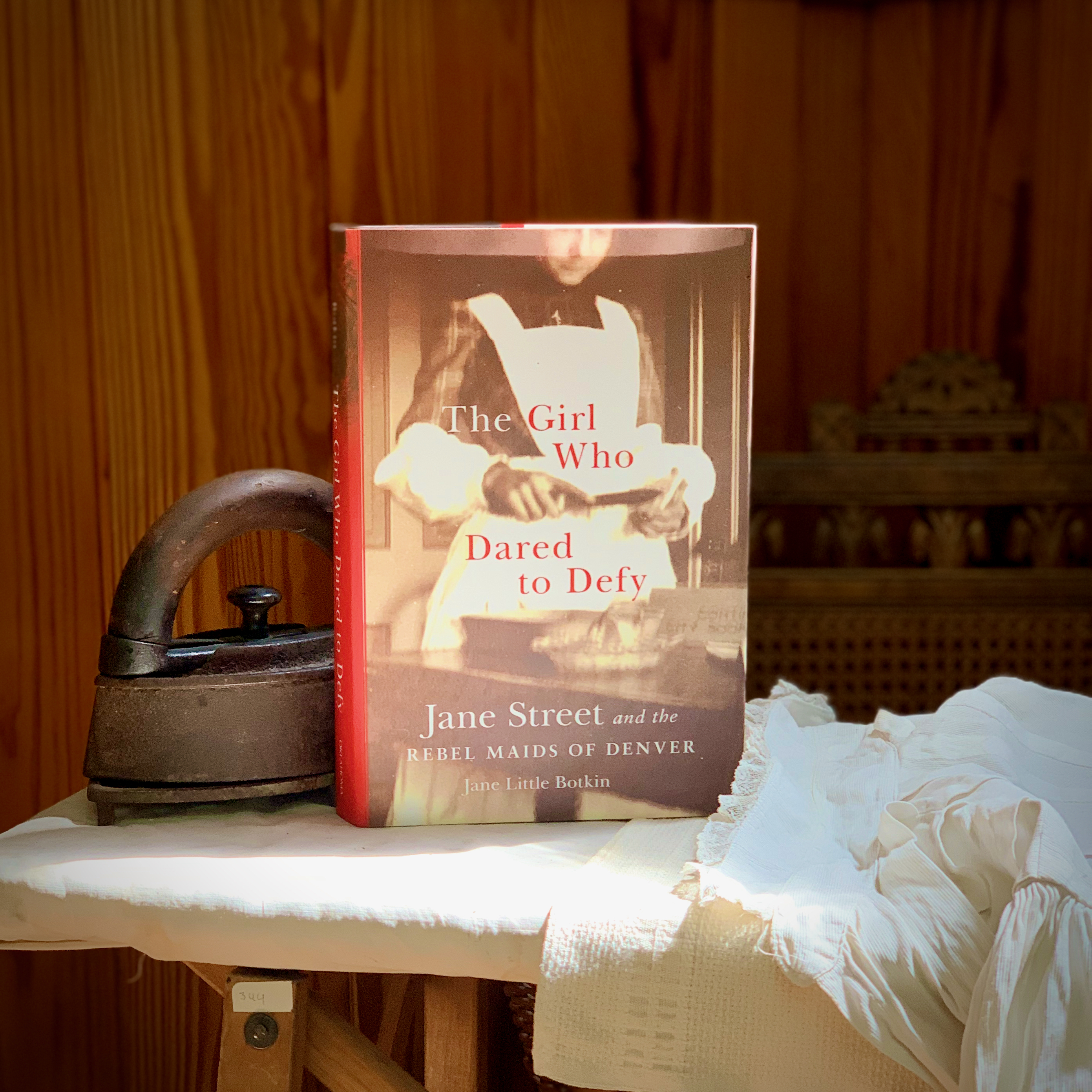Story
The Girl Who Dared to Defy: Jane Streets and the Rebel Maids of Denver
Winner of the 2022 Barbara Sudler Award
The 16th Biennial Barbara Sudler Award recognizes the best work of nonfiction or fiction on a western American subject by a woman author.
“[We] have got results. We actually have POWER to do things. We have raised wages, shortened hours, bettered conditions in hundreds of places.” —Jane Street, 1917
Jane Little Botkin was investigating a family murder for her first book, Frank Little and the IWW: The Blood That Stained an American Family (University of Oklahoma Press, 2017), when she came upon another story too alluring to ignore. It was the story of a young woman and single mother, Jane Street, whose life paralleled many of the experiences of Little Botkin's grandmother.
Both women fled abusive men they had married at a young age and found themselves working among domestic workers in the nineteen teens in Colorado. Intrigued, Little Botkin set out on a hunt for the story that would take her across several states, searching for information about Street, who she learned had been the organizer of a housemaid rebellion. “I believe when writing about a person you have to walk the walk and talk the talk they did, you have to feel it,” Little Botkin said of her process.
In addition to traveling and visiting archives to uncover Jane’s story, Little Botkin used case histories, historic meeting notes and primary sources, family archives, and the writings of Jane Street. Street’s writings would reveal themes of injustice, heartbreak, betrayal, and a quality Little Botkin makes sure to emphasize—tenacity.
Jane Street began her activist endeavors as an organizer for the Industrial Workers of the World (IWW). A stenographer by trade, Jane used her business skills and experience to create a business model for creating a domestic workers’ union and would attempt to orchestrate a domestic mutiny against Denver’s elitist Capitol Hill women, including wives of the state’s national guard officers and Colorado Fuel and Iron operators.
Domestic workers had some of the most difficult jobs available to Colorado women at this time. They worked long hours for low wages and were often at the mercy of employers who treated them poorly. There was no common standard for working conditions or pay. Distance from one another, being expected to work around the clock, and being confined to their employers’ homes made it difficult to organize. Street, being a fierce advocate for women, children, and the working poor, believed Denver’s housemaids, cooks, and laundry girls deserved fair wages along with better working hours and living conditions.
The Girl Who Dared to Defy unearths a deep history—one of early-twentieth-century class struggles, the women’s suffrage movement, and the systematic injustice experienced by Jane and many other women like her. The book’s exploration of untold stories in working class and labor history in early Denver make a well-deserved winner of the Barbara Sudler Award.
More about the author
Jane Little Botkin is the author of Frank Little and the IWW: The Blood That Stained an American Family, winner of five awards including two Spur Awards from the Western Writers of America and the Caroline Bancroft History Prize.
You can find The Girl Who Dared to Defy: Jane Streets and the Rebel Maids of Denver at the Center for Colorado Women’s History shop, or you can support History Colorado by purchasing books online from Bookshop.org.
More about the award
Entries for the Barbara Sudler Award are single-volume, single-author works (not co-authored or edited books or anthologies) of fiction or nonfiction that have a strong western character and link to one or more western themes. Subjects may include history, natural history, literature and the arts, folklore, and social or cultural life of the past or present.
Named in honor of the first woman to serve as Colorado’s Historic Preservation Officer, the award honors a work about a western American subject by a female author. It carries a cash prize of $500 for the author. Awarded biannually, it has been received by thirteen talented scholars, artists, and historians since 1992. Winning works have covered a broad range of subject matter relevant to western history—from photography collections to autobiographies to a history of barbecue—and have addressed community experience in Colorado, Texas, and New Mexico.
History Colorado Center volunteers and staff complete the first round of judging and narrow it down to two finalists; three judges then select the winner. The judges responsible for selecting the winning work are usually scholars, including a previous winner.
When determining which work to select, judges of the award consider technical criteria like author creativity and clarity of organization and purpose, as well as the significance of the book to an understanding of the West and its people; the degree to which the author has lived up to the subject’s potential; the ability of the author to keep the reader interested throughout; and the book’s potential for making a long-term contribution to scholarship and knowledge about the West and the success with which the book will be meaningful to a broad audience.

